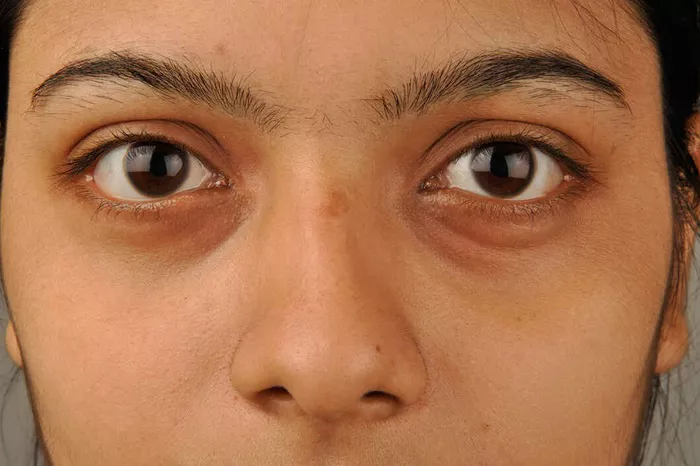Puffy eyes are a common concern for many individuals, often leading to a tired and aged appearance. While this condition is usually temporary, understanding its causes and treatments can help manage or eliminate it. This article explores the reasons behind puffy eyes, the effectiveness of home remedies, medical treatments, and preventive measures.
Understanding Puffy Eyes
What are Puffy Eyes?
Puffy eyes refer to a noticeable swelling around the eyes. It can vary from slight swelling to a pronounced puffiness, affecting one’s facial appearance and sometimes interfering with vision. Puffy eyes can be temporary, often appearing in the morning and reducing throughout the day. However, they can also be persistent, requiring medical attention.
Causes of Puffy Eyes
Fluid Retention: Sleeping flat can cause fluid to accumulate under the eyes.
Allergies: Allergic reactions can lead to inflammation and swelling.
Diet: High salt intake can cause the body to retain water, leading to puffiness.
Aging: The skin around the eyes becomes thinner and more susceptible to sagging and puffiness as you age.
Genetics: Some people are more prone to developing puffy eyes due to their genetic makeup.
Lack of Sleep: Inadequate rest can cause the eyes to appear puffy and tired.
Is Puffy Eyes a Serious Condition?
Generally, puffy eyes are not a serious medical condition. They are often temporary and cosmetic. However, if puffy eyes are accompanied by pain, itching, redness, or changes in vision, it could indicate an underlying medical issue that requires professional evaluation.
Home Remedies for Puffy Eyes
Cold Compress
Applying a cold compress is a simple yet effective method to reduce swelling. The cold temperature constricts blood vessels, reducing fluid in the area.
Method: Use a clean, soft cloth soaked in cold water, or place chilled cucumber slices on closed eyes for 10-15 minutes.
Tea Bags
Caffeinated tea bags contain tannins that can help tighten the skin and reduce puffiness.
Method: Soak tea bags in warm water, then chill them in the refrigerator. Place them over closed eyes for 15-20 minutes.
Cucumber Slices
Cucumbers have anti-inflammatory properties that can soothe the skin and reduce swelling.
Method: Cut two slices of chilled cucumber and place them on the eyes for about 10 minutes.
Hydration
Drinking plenty of water helps flush out toxins and reduces fluid retention in the body.
Method: Aim to drink at least 8 glasses of water per day. Limit caffeine and alcohol, as they can cause dehydration.
Proper Sleep
Getting enough sleep is crucial in reducing eye puffiness.
Method: Aim for 7-9 hours of sleep per night. Elevate your head with an extra pillow to prevent fluid from settling around the eyes.
See also: How to get rid of puffy eyes with ice?
Medical Treatments for Puffy Eyes
Topical Treatments
Eye Creams: Eye creams containing ingredients like caffeine, hyaluronic acid, and retinol can reduce puffiness.
Prescription Creams: In some cases, a doctor may prescribe stronger creams or ointments to reduce inflammation and puffiness.
Injections
Dermal fillers, such as hyaluronic acid, can be injected under the eyes to reduce puffiness and dark circles.
Procedure: A healthcare professional injects the filler into the affected area, which can last several months.
Laser Therapy
Laser therapy can tighten the skin and reduce puffiness.
Procedure: A dermatologist uses a laser to target the affected area, promoting collagen production and tightening the skin.
Surgical Options
Blepharoplasty: This surgical procedure involves removing excess skin, muscle, and fat from the eyelids to improve the appearance of puffy eyes.
Recovery: Patients can expect bruising and swelling for a few weeks post-surgery, with full results visible after a few months.
Allergy Treatments
For puffy eyes caused by allergies, antihistamines or other allergy medications can help reduce symptoms.
Consultation: A doctor can provide a proper diagnosis and recommend the best treatment plan.
Preventive Measures
Healthy Diet
A balanced diet rich in antioxidants and low in salt can help prevent fluid retention and inflammation.
Tip: Include plenty of fruits, vegetables, and whole grains in your diet. Reduce your intake of processed foods and salty snacks.
Regular Exercise
Regular physical activity improves blood circulation and reduces fluid buildup.
Recommendation: Engage in moderate exercise for at least 30 minutes a day, such as walking, jogging, or yoga.
Proper Skincare
Using gentle, hypoallergenic skincare products can prevent irritation and swelling around the eyes.
Tip: Always remove makeup before going to bed and avoid harsh chemical products.
Avoid Smoking and Alcohol
Smoking and excessive alcohol consumption can lead to premature aging and puffiness.
Advice: Quit smoking and limit alcohol intake to prevent skin damage and puffiness.
When to See a Doctor
While puffy eyes are usually a cosmetic issue, certain symptoms warrant a medical evaluation:
Persistent Swelling: If puffiness does not improve with home remedies or lifestyle changes.
Pain or Discomfort: If you experience pain, itching, or discomfort around the eyes.
Changes in Vision: If your vision is affected by the swelling.
Associated Symptoms: If you experience other symptoms such as fever, redness, or difficulty breathing.
Conclusion
Puffy eyes are a common condition with various causes and treatments. While often temporary and cosmetic, they can sometimes indicate an underlying medical issue. By understanding the causes and implementing home remedies, medical treatments, and preventive measures, you can effectively manage and reduce puffiness. However, if symptoms persist or worsen, it is essential to consult a healthcare professional for proper diagnosis and treatment.
Related topic:
Does Cucumber Help With Puffy Eyes?
How To Get Rid Of Puffy Eyes In The Morning?
8 Home Remedies To Get Rid Of Puffy Eyes From Crying


